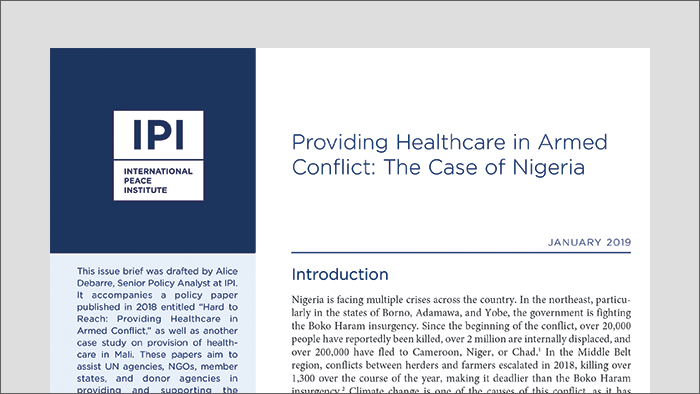
The humanitarian situation in Nigeria’s northeast is deteriorating, with more than 5 million people in need of healthcare and over 800,000 out of the reach of humanitarian actors. Given this level of need and the poor state of the healthcare system in northeastern Nigeria, humanitarian and other nongovernmental health actors play an important role.
This issue brief maps the challenges these health actors face and assesses their response. It accompanies a policy paper published in 2018 entitled “Hard to Reach: Providing Healthcare in Armed Conflict,” as well as another case study on provision of healthcare in Mali. These papers aim to assist UN agencies, NGOs, member states, and donor agencies in providing and supporting the provision of adequate health services to conflict-affected populations.
This issue brief concludes with recommendations for how health actors can improve delivery of health services in northeastern Nigeria:
- Humanitarian health actors should improve coordination both with each other and with global health actors working in northeastern Nigeria.
- Relevant UN agencies, local and international health NGOs, donors, and the Ministry of Health should scale up the response to under-prioritized health services.
- Humanitarian and development NGOs, donors, and the Ministry of Health should focus efforts to implement the humanitarian-development nexus for health services on areas where it is relevant and feasible.
- Humanitarian health actors should improve their accountability for the health services they provide.
- Humanitarian donors need to ensure that counterterrorism clauses in their funding contracts are not overbroad and do not impede neutral, independent, and impartial aid.







